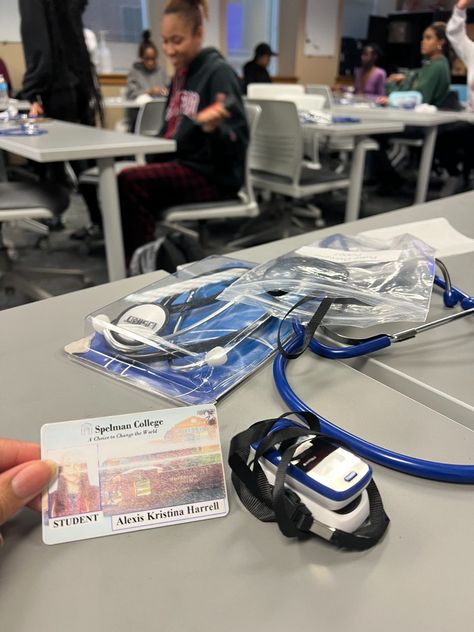Effective engagement with healthcare professionals (HCPs) is crucial for improving patient care, driving the adoption of innovative treatments, and building long-term relationships in the healthcare industry. Whether you are a pharmaceutical company, a medical device manufacturer, or a healthcare service provider, developing strategies that resonate with HCPs is key to success. The goal is to create meaningful, value-driven interactions that keep HCPs informed, engaged, and empowered. Here are some strategies to enhance HCP engagement effectively.
1. Personalized Communication
Personalization is at the heart of effective HCP Engagement. Treating each HCP as an individual, rather than a generic target, helps build trust and fosters more meaningful interactions. Tailor your communications to their specific needs, interests, and specialties. For instance, a cardiologist may be more interested in the latest developments in heart disease treatments, while an oncologist might focus on cancer research and therapies. Personalizing content and outreach through segmentation based on practice, specialty, and patient demographics ensures that HCPs receive the most relevant and timely information.
2. Offer Educational Content and Resources
Healthcare professionals are committed to continuous learning to stay abreast of new research, treatment options, and guidelines. Providing HCPs with access to high-quality, evidence-based educational resources can significantly enhance engagement. This could include clinical trials data, whitepapers, webinars, continuing medical education (CME) opportunities, or interactive case studies. These offerings not only help HCPs expand their knowledge but also position your organization as a valuable source of information that supports their professional development.
3. Leverage Digital Tools and Technology
In today’s healthcare environment, HCPs expect convenient, digital-first interactions. Utilizing digital tools and platforms can significantly improve HCP engagement by making it easier to communicate, access information, and interact with your organization. Secure messaging apps, virtual meetings, and mobile-friendly resources can streamline communication, while data analytics tools can provide personalized insights and recommendations. Platforms like virtual conferences, webinars, and online CME programs allow HCPs to engage with content at their own pace and convenience, making it more likely they will participate.
4. Build Trust Through Transparent Communication
HCPs value transparency and integrity. Being honest and upfront about your products, services, or research findings helps build a strong foundation of trust. Transparent communication means clearly outlining the benefits, risks, and evidence supporting your offerings, while also being open about any potential conflicts of interest. By maintaining an open and ethical approach, you can establish long-term credibility with HCPs, ensuring that they view your organization as a trusted partner in healthcare.
5. Provide Opportunities for Two-Way Communication
Engagement should not be a one-way street. To foster meaningful relationships, it is important to encourage two-way communication. Ask for HCPs’ feedback, insights, and opinions on current trends, challenges, and the products or services you offer. Implementing surveys, focus groups, or one-on-one interviews can help you better understand HCPs’ needs and preferences. This feedback loop demonstrates that you value their input and are willing to make improvements based on their suggestions, further strengthening the partnership.
6. Utilize Social Media for Professional Engagement
Social media platforms like LinkedIn, Twitter, and professional forums provide an excellent opportunity to engage with HCPs outside of formal channels. Many healthcare professionals actively participate in these networks, where they share insights, discuss industry trends, and interact with peers. By maintaining a strong presence on these platforms and sharing relevant content, your organization can stay top-of-mind and become an integral part of HCPs’ online communities. Engaging HCPs through social media also allows for real-time communication and instant feedback, making it easier to connect and interact.
7. Provide Incentives and Recognition
HCPs appreciate recognition for their time, effort, and contributions. Offering incentives such as CME credits, discounts on products, or access to exclusive content can be effective in motivating participation in engagement activities. Recognizing their expertise, whether through public acknowledgment, awards, or opportunities to lead discussions, can also make HCPs feel valued and appreciated. These incentives don’t just show gratitude—they also enhance motivation and engagement by demonstrating that you recognize and reward their efforts.
8. Foster Collaborative Relationships
HCP engagement is not just about delivering information but also about collaborating to improve patient outcomes. Offering opportunities for HCPs to collaborate with other professionals, share experiences, or participate in research initiatives can deepen their engagement with your organization healthcare system. For example, organizing collaborative webinars with thought leaders or forming advisory boards of HCPs to discuss challenges and solutions helps strengthen the relationship and ensures that the engagement is mutually beneficial.
9. Offer Timely and Relevant Updates
HCPs are busy professionals who may not have the time to stay current on every industry development. Keeping them informed about new research findings, product updates, or treatment guidelines is essential. However, it is important to ensure that these updates are both timely and relevant. Avoid overloading HCPs with excessive communication and instead focus on delivering high-value updates that are aligned with their interests and patient care goals.
10. Focus on Long-Term Engagement
Successful HCP engagement is not about a single interaction; it’s about building long-term relationships. Continuous, sustained engagement ensures that your organization remains a trusted partner over time. Regular check-ins, updates, and offering new opportunities for involvement help maintain an ongoing connection. The key is consistency—establishing trust and rapport through frequent, meaningful interactions, rather than only engaging HCPs when you need something from them.
Conclusion
Effective HCP engagement is essential for building strong, productive relationships that benefit both healthcare professionals and the organizations they work with. By implementing strategies such as personalized communication, educational resources, digital tools, transparency, two-way communication, and collaborative opportunities, you can enhance HCP engagement and contribute to better healthcare outcomes. These strategies not only support HCPs in their professional development but also position your organization as a trusted partner in the healthcare ecosystem. Ultimately, fostering meaningful, long-term relationships with HCPs is the key to success in today’s rapidly evolving healthcare environment.

